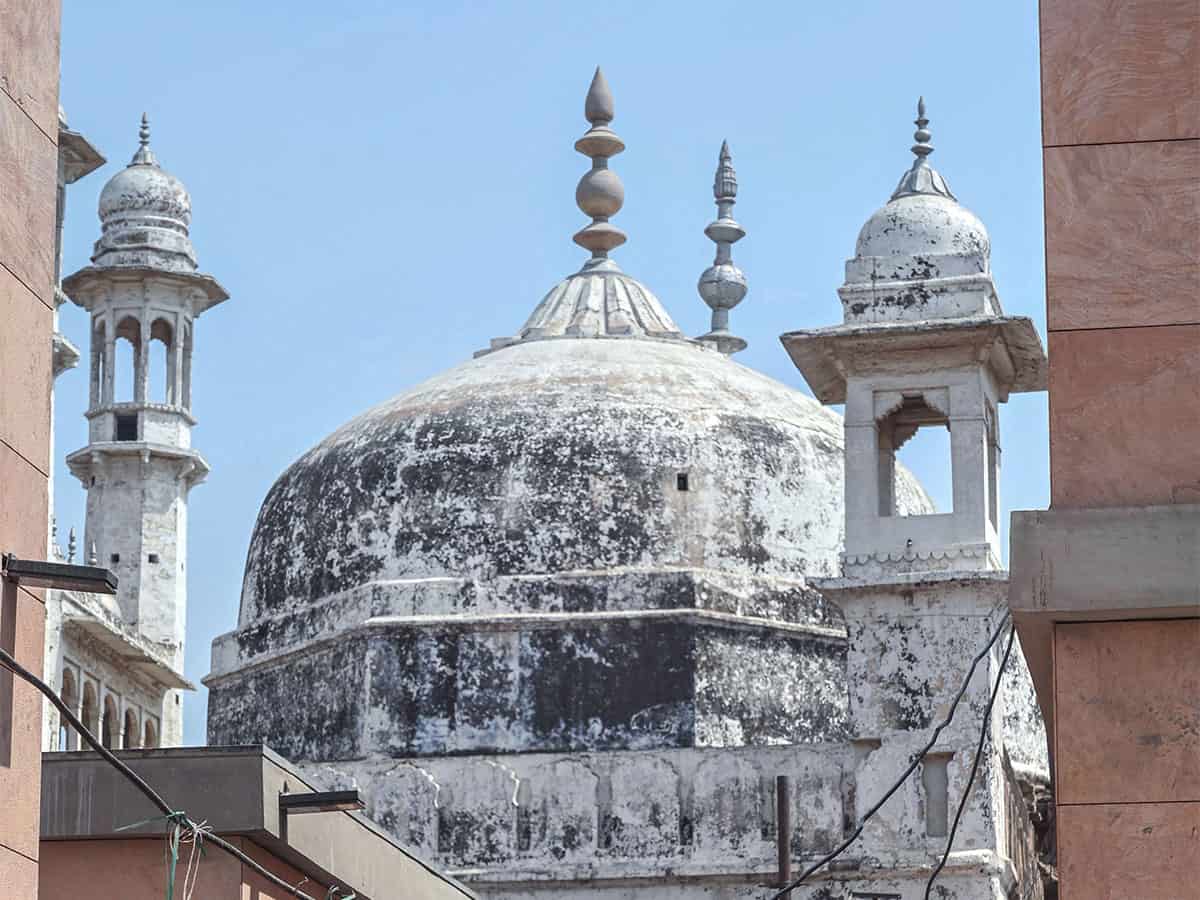
Varanasi: The district court here on Monday heard arguments on the maintainability of a plea by five Hindu women seeking permission for daily worship of the Shringar Gauri Sthal in the Gyanvapi mosque complex.
District Judge AK Vishvesh posted the matter for further hearing on July 4.
During the hearing on Monday, the Muslim side argued against the maintainability of the plea, District Government Counsel Rana Sanjiv Singh said.
The counsel for the Hindu side, Vishnu Shankar Jain, told reporters that the court has categorically stated that the report on the videography survey of the complex will be made available to all parties.
However, only the court will tell what will be the conditions for this, he said.
The survey was conducted earlier this month on the orders of a lower court.
Meanwhile, a fast-track court hearing the plea seeking permission to allow worship of the “Shivling” claimed to be found during the videograpgy survey in the Gyanvapi-Shringar Gauri complex posted the matter for further hearing on July 8.
Government advocate Sulabh Prakash said during the hearing, the court said the original copy of the petition will be made available to all parties.
The court fixed July 8 as the next date of hearing, he said.
General secretary of the Vishwa Vaidik Sangh on May 24 had submitted a plea in the court of Civil Judge (Senior Division) Ravi Kumar urging a ban on the entry of Muslims to the Gyanvapi mosque complex, handing over the complex to Hindus, and allowing worship of the “Shivling”.
Seeing the immediate nature of regular worship, the court had posted the matter for hearing on May 25.
District Judge AK Vishvesh on May 25 had sent the matter to a fast-track court for hearing on May 30.
The Muslim side has argued that the plea is not maintainable as the Places of Worship Act, 1991 prohibits conversion of any place of worship and mandates the maintenance of the religious character of any place of worship as it existed on August 15, 1947.
After the plea was filed, a lower court had ordered a videographic survey of the Gyanvapi complex and the Hindu side had claimed a “Shivling” was found during the exercise.
However, the Muslim side has maintained that the object was part of the water fountain mechanism at the “wazookhana” reservoir- where devotees carry out ablutions before offering namaz.
On May 20, the Supreme Court had transferred the case from a civil judge (senior division) to a district judge, saying looking at the “complexities” and “sensitivity” of the issue, it is better if a senior judicial officer with an experience of over 25-30 years handles this case.



